Review for Godzilla
Introduction
Anyone remember Superbit? That was Sony and Columbia Tristar’s short lived exclusive DVD format, which aimed to maximise the quality of the film by stripping the discs of extra features, and encoding the video and audio to make the most of the available disc space. That meant 5.1 surround audio as standard and video bitrates significantly higher than on the standard releases. This was supposed to reduce compression and maximise the viewing experience. It turned out to be something of an expensive gimmick. I never bought a Superbit disc, as I felt the standard releases were good enough, especially on the small TV that I watched them on. But I always had in mind a couple of titles that I would try on Superbit, one of them The Fifth Element. But by the time I got around to double dipping on that title, I wound up getting it on Blu-ray.
Well, Sony and Columbia Tristar are trying again for the HD age, with their Mastered in 4K programme. It’s essentially the same thing, only with Blu-rays now stripped of extras, and the audio and video bitrates maxed out. But this time it’s half gimmick and half genuine. For the Mastered in 4K titles, they’ve done just that, gone back to the source material, and instead of using the original 2K HD scans from which Blu-rays and indeed some DVDs are mastered, they’ve gone and scanned the films at 4K resolution, which very much means maxing out the detail and fidelity of the video, and future proofing it for UltraHD formats (until they start making 8K and 16K TVs). The resulting image has to be scaled down to fit the Blu-ray format.
That much is genuine. The gimmick comes in the “Optimized for 4K Ultra HD TVs” banner at the bottom of the case. It’s a Blu-ray disc, 1080p is the maximum you’re going to get out of it. All that a 4K TV will do is scale up the image, much as your HD TV does to DVDs. It will look better than the standard Blu-ray the same way a Superbit DVD looked better than a standard DVD, less compression. I did briefly get excited at the Expanded Color delivering a more brilliant picture on xvYCC compatible TVs and Blu-ray players. I’ve got those, I thought; time to finally use the Deep Colour functionality of my set-up. Except that Deep Colour is part of the HDMI 1.4 spec, while Expanded Color is Sony’s proprietary technology, and is only available in selected Sony televisions and players. So yeah, gimmick!
The second title I always flirted with Superbit for was 1998’s Godzilla. I had it on widescreen VHS to begin with, and it was 2 hours and 10 minutes of greyish mud. You won’t believe the revelation I had when I first watched it on DVD, I could actually see the movie, but it was still a grey, rain-soaked experience and all that particulate motion on screen really only resulted in compression artefacts, bearable on a 28” CRT screen, but anything bigger than that was disappointing. I didn’t particularly need the same extras again, so when it came to upgrading to Blu-ray, I decided to go straight for the “Ultrabit” edition. Which I found out was released in a Steelbook Edition limited to 2000 copies in the UK, exclusive to Zavvi, which no one bought until it dropped to £5.99 in a sale, at which point it sold out, only for hundreds of marketplace sellers on Amazon, Rakuten and eBay to suddenly be offering it at close to the original RRP again. I imported the exact same US disc, which comes in a case that isn’t pre-dented. So this is the first Mastered in 4K disc that I get to watch (I have Ghostbusters still languishing in a pile somewhere).
French nuclear testing in the Pacific has led rise to a monstrous mutation, and soon incidents of devastation are being tracked toward the east coast of America. The US Army drafts the skills of biologist Dr Niko Tatopolous to shed light on the gargantuan creature that has caused such havoc. He studies the effects of radiation on normal creatures and though his theories are outlandish, they rapidly gain credibility as the creature is tracked to Manhattan. When the giant lizard appears in New York causing mass destruction, the city is evacuated. However rather than fleeing this mayhem, news cameraman Victor "Animal" Palotti, and Audrey Timmonds, a reporter`s assistant who is looking for her big break (as well as Niko’s ex girlfriend) pursue the story. Completing the group of hunters is a French Secret Service Agent, Phillipe Roache, who with his band of fellow countrymen looks to stop the beast in an attempt to atone for his country’s mistake. By now, the creature dubbed Godzilla has made itself at home in Manhattan and is in the process of making little Godzillas.
Picture
Godzilla gets a 2.40:1 widescreen transfer at 1080p resolution. I haven’t seen the standard Blu-ray release of this film, but comparing it to the DVD release is once again like comparing that DVD to the original VHS tape I had. The difference is phenomenal. For such a grey and dark film, Godzilla turns out to be very colourful and rich. The image is clear and sharp, and the film has a natural layer of grain to it. Blacks are suitably black, while there’s no crush, no blown whites. There’s no compression visible, no banding, while detail levels are fantastic, and the film has the requisite pop that you will expect from HD. Even the most challenging of scenes, heavy rain in Manhattan, smoky subterranean caverns where there’s a lot of particulate motion, and greater chance of compression artefacts, all come across fantastically on this disc. The only niggle might be with the source material. Some of the hideout scenes where the French agents discuss American coffee are of soft focus, while the seams are beginning to show in some of the effects shots as obviously green-screened.
Sound
You have the choice between DTS-HD MA 5.1 Surround English and French, with optional subtitles in English, French, Spanish, Thai, Korean, and Mandarin (Simplified and Traditional). I watched with the English audio naturally (it offers player generated subtitles for the French dialogue), and was very pleased with the experience, offering full use of the surround soundstage, immersing you in the film’s music and sound effects, while keeping the dialogue clear throughout. Godzilla is a palpable presence in the film, while the might of the US military buzzing around Manhattan in F18s, Apache Gunships and Armoured Vehicles, letting loose all levels of ordinance, certainly keeps the subwoofer working. It’s an excellent surround track.
Extras
The Godzilla disc is presented in a US sized Blu-ray Amaray, with a latch on the side that I envisage will be broken off at some point. The film is presented with a CGI animated menu, and the film will display a progress bar when paused or being skipped through. It’s also one of those discs that will hold its place in memory after being ejected. There’s an Ultraviolet code for the movie if you want to watch it on other devices which expires in 2016. There are no extras on this disc.
Conclusion
People always slate the 1998 Godzilla, but I have a soft spot for it. I guess that makes it my guilty pleasure. The evolution of the summer blockbuster has taken a journey from actors to effects. Way back in the seventies, when Jaws heralded a new way of making movies, the actors were the stars, in fact they had to do the heavy lifting when the special effects were ropy, or in fact just didn’t work. Writers had to care about character and story, the director had to work around the limitations of special effects technology, and nothing could be fixed in post. Today, the reverse is true. The special effects are the stars, they’re the reason people wander into summer blockbusters. I couldn’t name any of the major actors working in Hollywood now, and everything is fixed in post, including that horrific orange and teal colour timing that makes my eyes want to vomit.
Yet there was a time, from the early to late nineties where special effects and actors were in balance. The special effects had just entered the digital age with arrival of Jurassic Park and Terminator 2 and the prospect that anything could be accomplished on screen given enough money was very real. But digital effects were horrendously expensive back then, so directors, writers and actors still had to do the heavy lifting. So you’d get the best of both worlds, decent and engaging characters on screen that the audience could empathise with, as well as believable special effects.
Godzilla comes from the tail end of that period, is full of giant lizard action, but has very likeable characters. You can get invested in their personal stories as the mayhem in the city continues, whether it’s the main cast of Tatopolous, Animal, Audrey and Phillipe, or the tertiary characters like Hicks, the Mayor, or O’Neal. Incidentally Jean Reno is fantastic in this as the French secret service agent Phillipe Roache, and there’s always an undercurrent of humour in the film which counterbalances the insane levels of destruction, and keeps things gleefully tongue-in-cheek. These disaster movies have never been films to take seriously, and to present them as po-faced serious docudramas is I find doing the audience a disservice. Speaking of po-faced docudramas, the next disaster movie from the Devlin Emmerich stable would be the leaden Day After Tomorrow, which indeed crossed the line from balanced effects movie to the effects are the stars, not the actors.
Back when I reviewed the DVD, I had no idea of the direction the movie industry would take thereafter, and I understandably slated Godzilla as not being as good as Independence Day. That’s still true, but given what has happened to Hollywood since, it’s easy to re-evaluate Godzilla as the last of a silver era for Hollywood, back when movies were fun, disposable and cheap for the audiences. This was back when going to the cinema cost less than £10 at peak hours. In the intervening years, Godzilla has stopped being entertaining rubbish and has become a genuine guilty pleasure for me. I have fun watching Matthew Broderick singing in the rain, Jean Reno grouching about coffee with his army of Jean hyphens, Harry Shearer being a short dork, Maria Pitillo calling him a moron (with hand gestures), and Hank Azaria being more scared of his wife than the lizard. I’d much rather watch this Godzilla than the recent one, the one with the orange and teal trailer and no actor I’d ever heard of or recognise, all being military and shouting a lot.
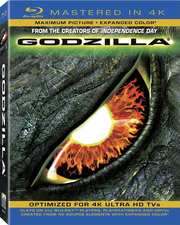






























































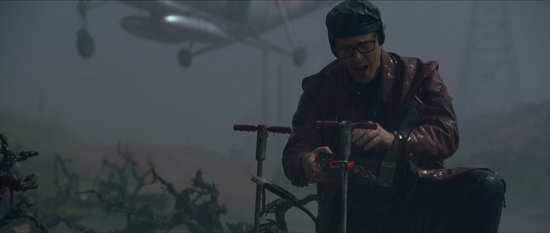
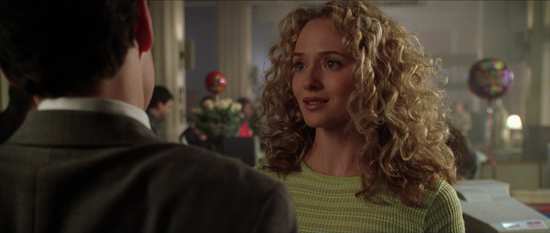
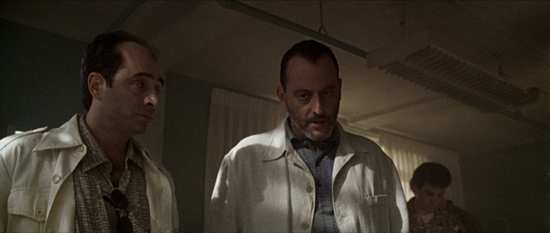
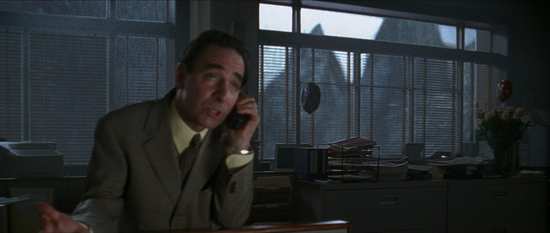

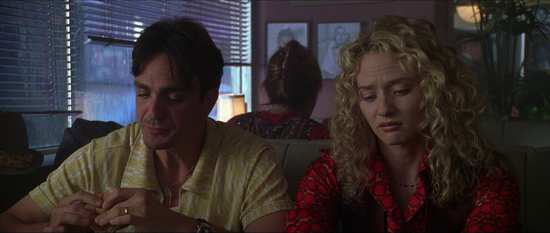
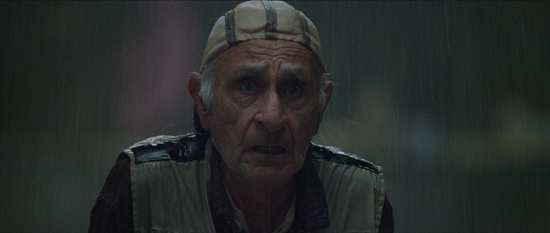
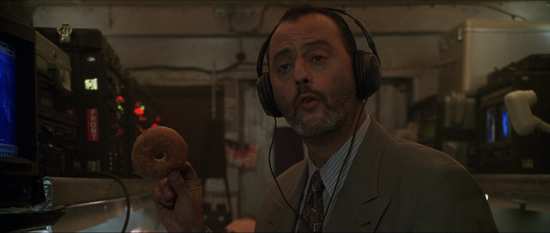
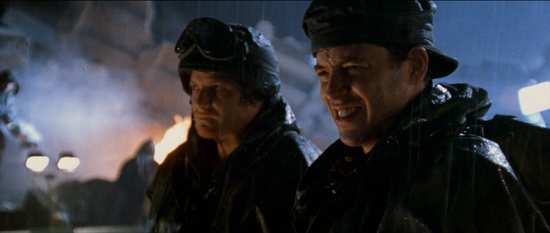
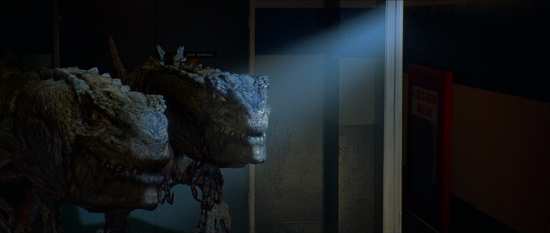
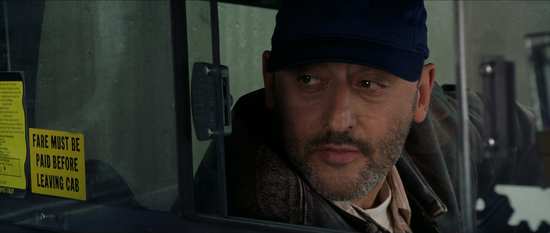
Your Opinions and Comments
Be the first to post a comment!